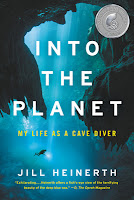For years I've planned to read Middlesex by Jeffrey Eugenides but just never got around to it. But having decided this year to vary my choice of books a bit more I thought it was time and duly popped it onto my Kindle. This month 'at last' I read it.
From 1919 to 1922 Greece occupied a region of Turkey known as Smyrna. Brother and sister Eleutherios (known throughtout the book as 'Lefty') and Desdemona Stephanides live there and are Greek. In 1922 Turkey decide to take the city back and basically burnt it to the ground. Thousands die but Lefty and Desdemona somehow survive and get themselves onto a boat to America, where they are anonymous and no one knows they are related... and in love. Masquerading as strangers who have just met, they marry aboard ship and arrive in the US, a married couple.Their destination is Detroit, Michigan where they have a cousin already settled.
Calliope, 'Cal' Stephenides is their grandchild. She always says she was born twice, first in 1960 and again in 1974. Something about her wasn't spotted when she was born and was somehow missed by her mother too. Cal knows she isn't like other girls, but not how or why, only that as puberty hits, her body is not doing what every other girl's seems to be doing. Why?
This book was 'hugely' popular when it was first published back in 2013 and I can see why. It's basically a family saga with a twist but the twist does not become centre-stage until at least halfway through the book. Until then we hear what happened to Lefty and Desdemona, their marriage, their son, Milton, and a host of other rather interesting characters. The history of Detroit is very central to the plot, the lot of immigrants such as the Greeks and where they live, also the black population and their lives and how they are generally treated. The race riots of 1968 are very well covered, something I knew very little about.
The author takes a lot of time and effort to get the reader very close to the characters in Middlesex. Did it work? Sort of. It's 5 or 6 days since I finished it and the family is still in my head. But somehow I didn't feel a real bond between them and me, and I'm not sure why, possibly the writing style. I also felt the book lost its way in the final chapters. Cal behaves in a way that felt a bit cliched to me. I could see 'why' but it felt like yet another book descending into... well I won't say what but I rolled my eyes a bit. I 'did' however learn a lot about Cal's condition and for that this kind of book is incredibly useful and instructive... one of the reasons I read to be honest... I now know something I didn't know before.
So I gave Middlesex four out of five stars on Goodreads. It's beautifully written, I learnt a lot about Detroit and living in America from the 1920s to the 1970s, and not once did I feel like giving up on it, it had me hooked from the start. I loved it but with one or two misgivings. One big question... why the heck was Cal's brother called 'Chapter Eleven'. Did I miss something? LOL!
Anyway, recommended really, but might not be everyone's cup of tea. Middlesex is my first book for the Historical Fiction Reading Challenge 2021 which is being hosted by Marg at the Intrepid Reader.














